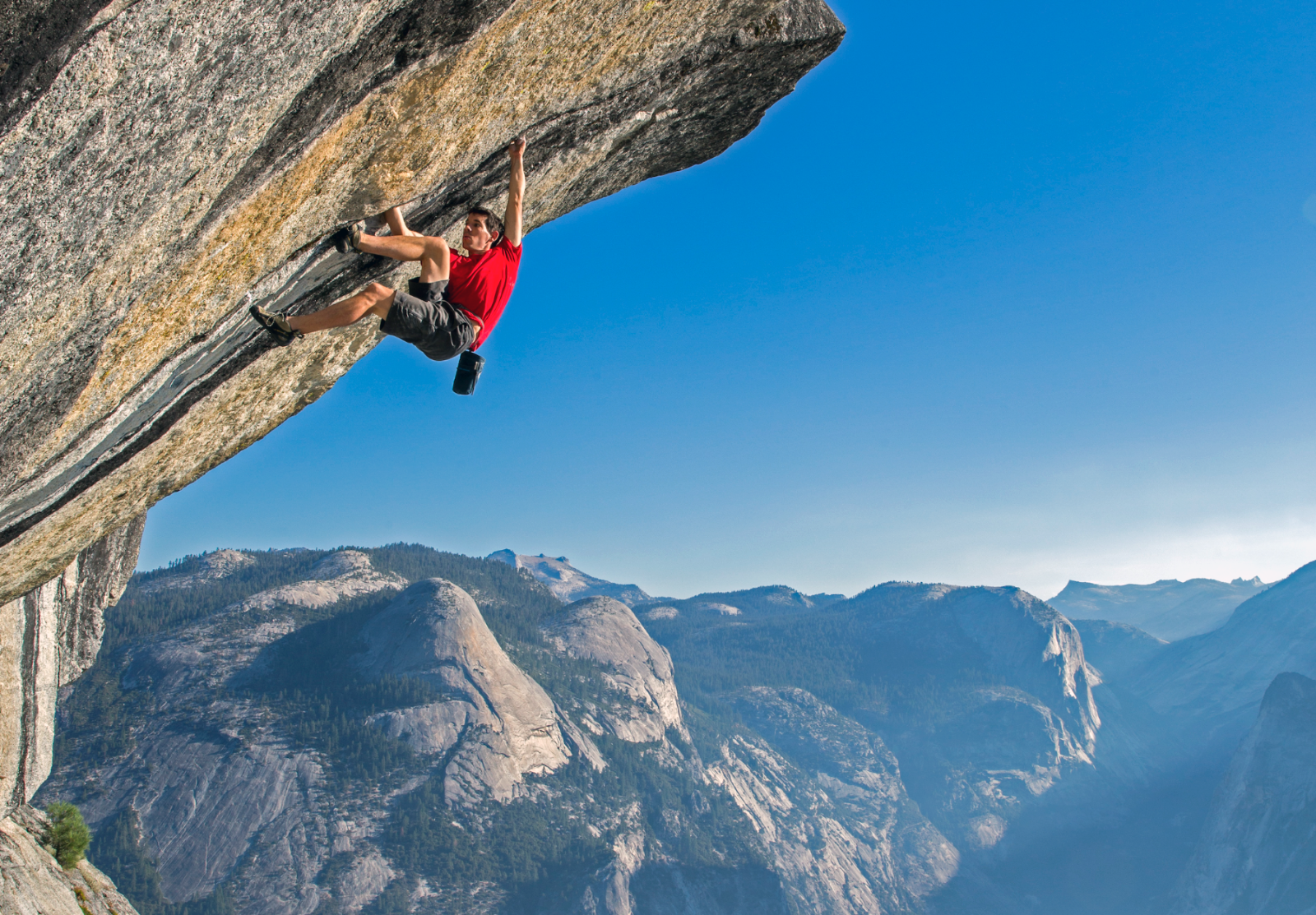One of my favorite recent movies is the documentary “Free Solo” (2018), in which Alex Honnold climbs the 3,000-foot El Capitan rock wall without a rope.
But my favorite scene isn’t when he summits. Or when he shows off the van he lives in so he can focus on climbing. Or any of the times he nearly falls.
It’s when he’s thinking about giving up on the whole idea and asks a veteran climber for advice.
“You never have to go for it,” the vet says.
I’m pretty afraid of heights. But I’ve got a little Alex Honnold in me. A little perfectionism. A little showing off for the camera.
If I wasn’t keeping an eye on it, this post would be filled with words like “grandiloquence” and “sumptuousness.” I’d be performing for you more than trying to connect with you.
“Rockstar” is what I call this part of me because I used to play guitar and sing in bands. Back then I really, really wanted to make it. I cared more about packing venues and selling t-shirts than enjoying jamming with my friends.
Now, the rockstar appears when I sit down the write. He whispers, “Stop it with these little blog posts—write a book!” Microsoft Word has replaced the stage. “Use bigger words! Don’t you want to seem clever?”
Thinking about that scene from “Free Solo” calms down my inner rockstar.
You never have to go for it, I think to myself. You never have to write that book. You’re already worthy of love. You belong. You don’t have to prove anything to anyone.
But the rockstar doesn’t let go so easily. He brings up childhood memories of adults praising me for being cute and smart and good at sports. He reminds me that I’m a white man in a society that tells white men to grab the mic, speak your mind, go for it, shoot your shot.
What I love about that scene is that the older climber was reminding Honnold that his choice to do the climb was his and his only. If he was doing it just to impress people, then he probably shouldn’t do it.
Really what the older climber was doing was showing that he’d stay friends with Honnold regardless of whether Honnold did the climb. He was giving him unconditional love. Which is exactly what parts of us like rockstar can’t give, and why they cause us so much suffering.
The inner voices that drive us think we have to be a certain way to get what we ultimately want—“to experience freedom, aliveness, love, and peace,” as professional coach Tripp Lanier puts it.
They can’t help it. They were how we protected ourselves when we were young and couldn’t handle the world’s beauty, its joy, its hurt. We learned to show off or strive all the time or hide our emotions or numb out or keep everyone else happy.
But we’re older now. We’re more mature. We’re able to choose based on what we really want, not what we used to think we wanted. If we can reassure our inner voices that they don’t have to be on guard all the time. If we can give ourselves unconditional love.
“People are just as wonderful as sunsets if you let them be,” wrote the pioneering psychologist Carl Rogers. “When I look at a sunset, I don’t find myself saying, ‘Soften the orange a bit on the right-hand corner.’ I don’t try to control a sunset. I watch with awe as it unfolds.”
That’s what we should bring to the parts of ourselves that we don’t necessarily like, that cause us suffering.
Honnold, of course, decided to do the climb. This is my projection. But it seemed like once he realized he had a choice, he chose to climb from a much deeper, stronger place inside of him.
I’m a writer, meditation teacher, and host of the Meditation for the 99% podcast. If you’d like to work with me on your meditation practice or being more mindful, reach out. Get my writing straight to your email inbox here.
Download my free ebook on starting and sticking with a meditation practice here.
